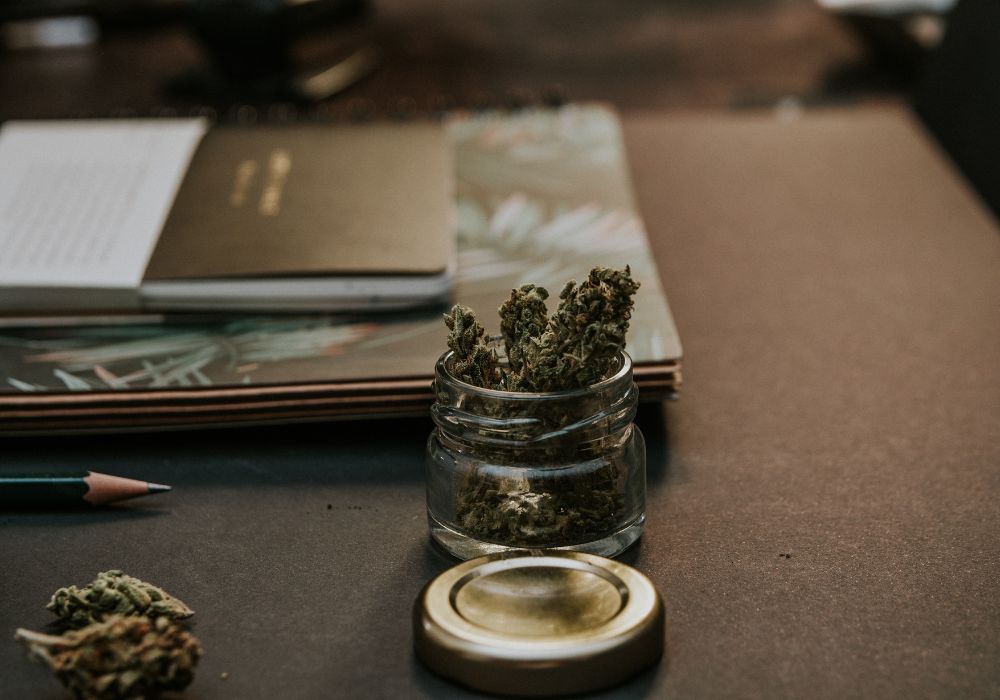Introduction
Substance misuse, also known as substance abuse or drug addiction, is a pervasive issue that affects individuals, families, and communities worldwide. Substance misuse has seen a significant rise in recent times due to a variety of factors and has resulted in potential risks not only to the Mental Health of people but also to their lives. It is a complex problem with numerous factors contributing to its development, and it can have severe physical, psychological, and social consequences. In this extended blog, we will explore the various types of substances commonly misused, discuss the signs and symptoms of substance misuse, delve into the wide-ranging effects it can have on individuals and society as a whole, and explore the importance of prevention and treatment.
Substance misuse happens among young adults due to different reasons, which include their desire to fit into a social group, the non-acceptance of a social group, a failed relationship, stress due to a problem that seems too big to them, loneliness, complex about their looks and having a different ideal figure in their minds, realization of realities that are too different from what they thought (thus may include their seeing themselves in a different image and eventually realizing that it was a lie), struggle to find solutions or acceptance of a loss. It basically centers around the unaddressed emotional needs of a person at this time when they are trying to deal with the hormonal changes internally and the different situations they encounter externally that comprise negativity. The addiction then developed sometimes continues later in their lives, which ultimately impacts their life, the lives of the ones who love them, their relationships, their work life and practically everything they are involved in.
Types Of Substances Misused
Substance misuse encompasses a broad range of drugs, both legal and illegal, that are used in a manner that deviates from their intended purpose. The following are some of the most commonly misused substances:
1.1 Alcohol
Alcohol is a legal and socially accepted substance that is often consumed recreationally. With modernization, the advent of technology and urbanization, alcoholism has become more of a social norm for acceptance or fitting into any group. However, excessive or prolonged alcohol use can lead to alcohol addiction, liver damage, cardiovascular problems, and mental health issues. Alcohol misuse is a significant public health concern worldwide.
1.2 Prescription Drugs
Prescription medications, such as opioids (e.g., oxycodone, hydrocodone), benzodiazepines (e.g., Xanax, Valium), and stimulants (e.g., Adderall, Ritalin), are frequently misused. When taken without a legitimate medical need or in higher doses than prescribed, these drugs can be highly addictive and pose serious health risks. Prescription drug misuse has become a significant problem, contributing to the opioid crisis in many countries. It is necessary to be watchful of their consumption.
1.3 Illicit Drugs
Illicit substances like cocaine, heroin, methamphetamine, and marijuana are commonly misused. These drugs can have profound effects on physical and mental health, leading to addiction, overdose, and a range of associated complications. Illicit drug misuse has serious societal implications, including increased crime rates and strain on healthcare and justice systems. There are plenty of cases of people, including public figures falling into the trap of drug usage and suffering the after-effects consequently. Even though there have been many campaigns to raise awareness among people about them, their consumption and demand are unstoppable.
1.4 Club Drugs
Club drugs, like ecstasy (MDMA), ketamine, and GHB, are popular among individuals attending parties, concerts, or raves. These substances can produce hallucinogenic or stimulant effects and can be dangerous due to their unpredictable purity and potential for adverse reactions. Club drug misuse is particularly prevalent among young adults in social settings.
1.5 Inhalants
Inhalants include a variety of volatile substances, such as glue, paint thinners, aerosol sprays, and gasoline, which are inhaled to achieve intoxication. Inhalant misuse can severely damage the brain, liver, kidneys, and other organs, as well as permanent neurological impairment. Inhalant misuse is a significant concern, especially among adolescents and young adults.
2. Signs And Symptoms Of Substance Misuse
Every life is valuable. Any small initiative or effort to save it can make a huge difference on the road to fighting substance misuse. Identifying the signs and symptoms of substance misuse is crucial in identifying the problem early and seeking appropriate help. While the specific signs can vary depending on the substance and individual, some common indicators include:
2.1 Physical Changes
These may include bloodshot eyes, dilated or constricted pupils, changes in appetite or weight, poor hygiene, slurred speech, tremors, and an unsteady gait. Some substances may cause track marks on the skin due to injection use.
2.2 Behavioral Changes
Substance misuse often leads to noticeable behavioral changes, such as increased secrecy, social withdrawal, sudden mood swings, irritability, agitation, impulsivity, and a decline in performance at work or school. Individuals may display increased aggression or engage in risky behaviors.
2.3 Neglected Responsibilities
Individuals struggling with substance misuse may neglect their personal and professional responsibilities, resulting in absenteeism, poor academic performance, financial difficulties, and strained relationships. They may lose interest in activities they previously enjoyed and have difficulty maintaining commitments.
2.4 Changes In Social Circle
A person’s social circle can change dramatically when substance misuse becomes an issue. They may start associating with a new group of individuals who engage in similar behavior or isolate themselves from family and friends. The person may also become involved in illegal activities to sustain their drug habit.
2.5 Risk-Taking Behavior
Substance misuse often leads to involvement in risky behaviors, like driving under influence, unsafe sexual practices, or participating in criminal activities to obtain drugs. These behaviors not only put the individual at risk but also endanger the safety and well-being of others.
3. Effects Of Substance Misuse
The effects of substance misuse are far-reaching and impact individuals, families, and society as a whole. Here are some of the significant consequences associated with substance misuse:
3.1 Physical Health
Substance misuse can lead to a variety of physical health problems, including organ damage, cardiovascular issues, respiratory complications, infectious diseases (e.g., HIV/AIDS, hepatitis), and an increased risk of overdosing. Chronic substance misuse takes a toll on the body, often resulting in long-term health issues and a decreased quality of life.
3.2 Mental Health
Substance misuse is closely linked to mental health disorders. It can exacerbate existing conditions like depression and anxiety, contribute to the development of new mental health disorders, and increase the risk of self-harm and suicide. Substance misuse can also impair cognitive function, memory, and decision-making abilities.
3.3 Family And Relationships
Substance misuse often strains relationships with family, friends, and romantic partners. Trust is eroded, communication breaks down, and conflicts arise as a result of the individual’s behavior, prioritizing substance use over their loved ones. Family members may experience emotional distress, financial burdens, and a sense of helplessness.
3.4 Financial Consequences
Substance misuse can lead to significant financial burdens. The cost of purchasing drugs, legal fees, medical bills, and lost income due to unemployment or decreased productivity can quickly accumulate, causing financial instability. Individuals may resort to illegal activities to finance their substance misuse, perpetuating a cycle of criminal behavior.
3.5 Legal Issues
Substance misuse can result in various legal problems, including arrests for drug possession or distribution, driving under the influence (DUI), and other criminal activities associated with obtaining drugs. Legal consequences not only disrupt the individual’s life but also impact their families and the broader community.
3.6 Social Stigma
Individuals struggling with substance misuse often face social stigma and discrimination. This can make it more challenging for them to seek help and reintegrate into society, perpetuating a cycle of isolation and substance abuse. The stigma associated with substance misuse creates barriers to treatment and support, further exacerbating the negative effects of the problem.
4. Importance Of Prevention And Treatment
Prevention and early intervention play a crucial role in addressing substance misuse. It is essential to educate individuals, particularly young people, about the risks and consequences of substance misuse. Prevention efforts should focus on promoting healthy coping mechanisms, resilience, and positive decision-making skills. In schools, community centers, and other relevant settings, programs should be implemented to raise awareness and provide support.
When substance misuse occurs, timely and effective treatment is vital. It should involve a comprehensive approach that addresses the physical, psychological, and social aspects of the problem. Treatment may include detoxification, counseling, behavioral therapies, support groups, and medication-assisted therapy. Rehabilitation centers, outpatient programs, and community-based services can provide the necessary support to help individuals overcome substance misuse and lead productive lives in recovery.
Conclusion
Understanding substance misuse, its types, signs, and effects is essential for tackling this widespread issue. By recognizing the signs early and providing appropriate support and treatment, individuals can break free from the cycle of substance misuse and lead healthier, more fulfilling lives. Additionally, addressing the broader societal factors that contribute to substance misuse, such as poverty, lack of education, and limited access to treatment, is crucial in creating a comprehensive and effective response to this multifaceted problem. Together, we can work towards a world where substance misuse is prevented, treated, and understood with compassion and empathy, creating healthier individuals and stronger communities.





